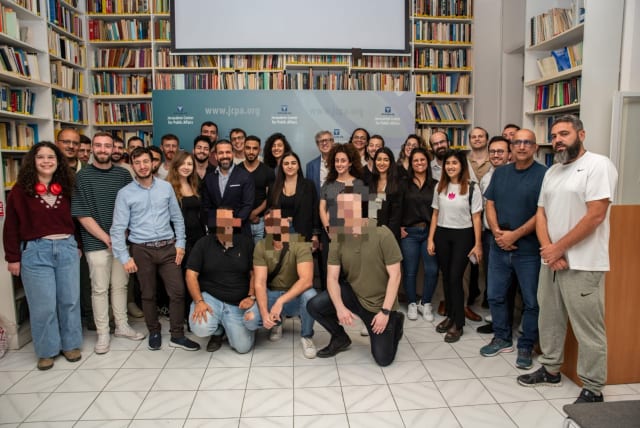Changing mindset: New program teaches Israeli students Arabic language and culture

The program was founded on the realization that Israelis need to better connect with their neighbors in the region.
The Jerusalem Center for Public Affairs (JCPA) has launched a new initiative titled "Speaking Middle East," which is designed specifically for Israeli university students. This initiative provides a unique opportunity for young Israelis from various academic backgrounds to delve into the complexities of the Arab and Muslim world.
The program targets Israeli students, typically in their third year or beyond, who will have the chance to learn from a distinguished faculty that includes Israeli diplomats, journalists, security personnel, and even former government officials.
Some of the program's prominent figures include Jason Greenblatt, a previous US envoy to the Middle East, and Brig. Gen. Yossi Kuperwasser, who formerly headed the research division of the Israel Defense Forces' Intelligence Corps.
At the program's inauguration, Israel's Agriculture and Rural Development Minister, Avi Dichter, stressed the significance of looking beyond language acquisition.
"Beyond learning the Arabic language, it is essential to understand the Arab mindset, which differs from ours. The students of this new course will have a unique opportunity to do so with the expertise of top professionals in the field. I applaud this amazing initiative, which will enable you to represent Israel honorably in the Arab world," he said.
The JCPA created the program after recognizing a growing need for Israeli students to bridge the cultural divide with their Arab neighbors. This need became particularly evident after the outbreak of the current war when the center actively disseminated information to the international community.
"With the start of the war, the concept has changed, and the Arabic language and culture have become important and even essential tools for every Israeli, especially those seeking to participate in Israel's efforts in the Middle East," said Middle East expert and Vice president of the JCPA Aviram Bellaishe.
"This is particularly necessary for analyzing threats and risks in order to understand 'Middle Eastern thinking,' to build bridges with regional countries and expand the historical Abraham Accords," he added.
"Speaking Middle East" offers a comprehensive curriculum tailored towards Israeli students, which includes courses in spoken Arabic, diplomacy, Islamic studies, and international law.
Workshops, field trips, and even a homestay experience with an Arab family are also incorporated. Upon completing their academic specialization, graduates will have the opportunity to join a regional leadership program.
The program has attracted over 40 Israeli students from across the country, representing diverse fields such as Middle Eastern studies, international relations, engineering, and computer science.
Khaled Abu Toameh, a former Jerusalem Post Palestinian affairs correspondent, course leader, and specialist in Arab society and communication, commented on the program's unique approach for Israeli students.
"Participants who join the program will meet and interact directly with Israeli diplomats, journalists, and commentators, as well as those from the Arab and Muslim world. At the end of the program, they will not only be able to speak Arabic fluently but also understand regional thinking.”
What is the Jerusalem Center for Public Affairs?
The Jerusalem Center for Public Affairs specializes in policy, diplomacy, and communication. Since its inception in 1976, the JCPA has evolved from primarily focusing on regional security, strategy, and international law research.
The center actively cultivates both overt and covert strategic partnerships with key figures from Arab and Muslim nations and remains a pivotal force in combating BDS and global antisemitism
Jerusalem Post Store
`; document.getElementById("linkPremium").innerHTML = cont; var divWithLink = document.getElementById("premium-link"); if (divWithLink !== null && divWithLink !== 'undefined') { divWithLink.style.border = "solid 1px #cb0f3e"; divWithLink.style.textAlign = "center"; divWithLink.style.marginBottom = "15px"; divWithLink.style.marginTop = "15px"; divWithLink.style.width = "100%"; divWithLink.style.backgroundColor = "#122952"; divWithLink.style.color = "#ffffff"; divWithLink.style.lineHeight = "1.5"; } } (function (v, i) { });
